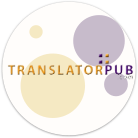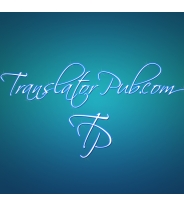|
Note: You must be registered in order to post a reply.
To register, click here. Registration is FREE!
|
| T O P I C R E V I E W |
| Stefan |
Posted - 01/23/2008 : 12:47:53
Hi,
here are some basics about chinese characters:
The Chinese Language is very complex and has had a long time of development process. The language is as old as the country, but the characters has been changed from generations to generations. The official language in China is Mandarin. But many provinces have there own dialect. It takes a knowledge of 3000 to 4000 characters to read a Chinese newspaper.
The most common language in China is Mandarin and Cantonese. Mandarin is nationwide taught in Chinese Schools. Cantonese is mainly spoken in Canton (Guangdong), Hong Kong, Macau and Singapore.
Can someone provide us with some more information on the basic characters? |
| 8 L A T E S T R E P L I E S (Newest First) |
| Shiki23 |
Posted - 08/30/2017 : 01:37:47
High qualified translation bureau providing all kinds of translation, interpretation and localization : https://perevesti.by/en/uslugi/perevod-dokument/
|
| MHA123 |
Posted - 07/17/2008 : 12:09:49
haha - yeah, but I definetly would like to see that happen ;-) wouldnt that be fun?
|
| carolinesaari |
Posted - 07/17/2008 : 09:33:59
Haha - that'd definitely be something to look forward to each week, although it may take a REALLY long time to be fluent! :) |
| Stefan |
Posted - 07/15/2008 : 02:52:26
Hehe - you know, we should set up a basic chinese learning day per week. I think that would be a great idea. What do you all think about that - offering a free language course at translatorpub.com per week? Any interest around? |
| Jobseeker_China |
Posted - 06/17/2008 : 17:58:21
Hi, Stefan, there are many overseas Chinese in Singapore but is does not belong to China :-)
by the way, I forgot one important dialect: Taiwanese (Min Nan Yu), it is widely spoken in Fujian province and in Taiwan. It is totally different from Cantonese and difficult understand. But for writing, people in Fujian Province will use standard Simplified Chinese (Jian Ti Zi )and Taiwannese wrote in Traditional Chinese (Fan Ti Zi), also in Hongkong, the writing character is traditional Chinese. older generation including those who were born in 1970s in mainland China can understand tradtional chinese quite easy but the younger generation cannot know too much of them
|
| Jobseeker_China |
Posted - 06/17/2008 : 17:50:00
Cantonese is quite popular in overseas Chinese as many people from Guangdong and Hongkong went abroad long time ago.people outside of Guangdong in the Greater China cannot understand Cantonese (Yueyu or Baihua)at all.
Chinese Character is the same across China ( We call that Hanzi ºº×Ö), the pronouncation is quite different in each Province. Most people understand Mandarin ( Pu Tong Hua), similar like Beijing Dialect, People from Shanghai speak a different dialect which people from other provinces cannot understand at all. areas close to shanghai such as Jiangsu and Zhejiang province, their dialects are quite similar but still very difficult to understand for people from north or south. In Guangdong, there are two major dialect: Hakka and Cantonese. Hakka is spoken by people from Chaozhou and Shantou where is known as the birthplace for best businessperson. Hakka culture is also quite different from guangzhou local culture. People in Northern part of China speak a dialect very similar with Mandarin so people from other places can understand each other quite easy. Sichuan, Chongqing, Hubei province, dialects sounds similar either and also can be understood.
But when we write, the Chinese character is the same, only different pronouncation. For example, one, in Mandarin; we pronounce as [Yi;], but in Cantonese we pronounce [Ya;]. I don't know how to pronounce in Shanghai or in Hakka area. When we pronounce two (2), in Mandarine, it is [Er], but in Cantonese it is [Yi;]. :-)
|
| MicheleGile |
Posted - 06/17/2008 : 16:12:19
That must have been one of those thinking out loud cases. |
| Stefan |
Posted - 01/23/2008 : 13:50:37
Haha, just found a great link myself: http://www.csulb.edu/~txie/online.htm
So, check it out ;-) |
|
|
| TranslatorPub.Com |
© 2006 - 2015 Translatorpub.com |
 |
|
|
|
| Try the new User Interface |  |
|
| Fundraiser |  |
|
| TranslatorPub- Shop |  |
|
| Site Sponsor |  |  |
|
|
|







